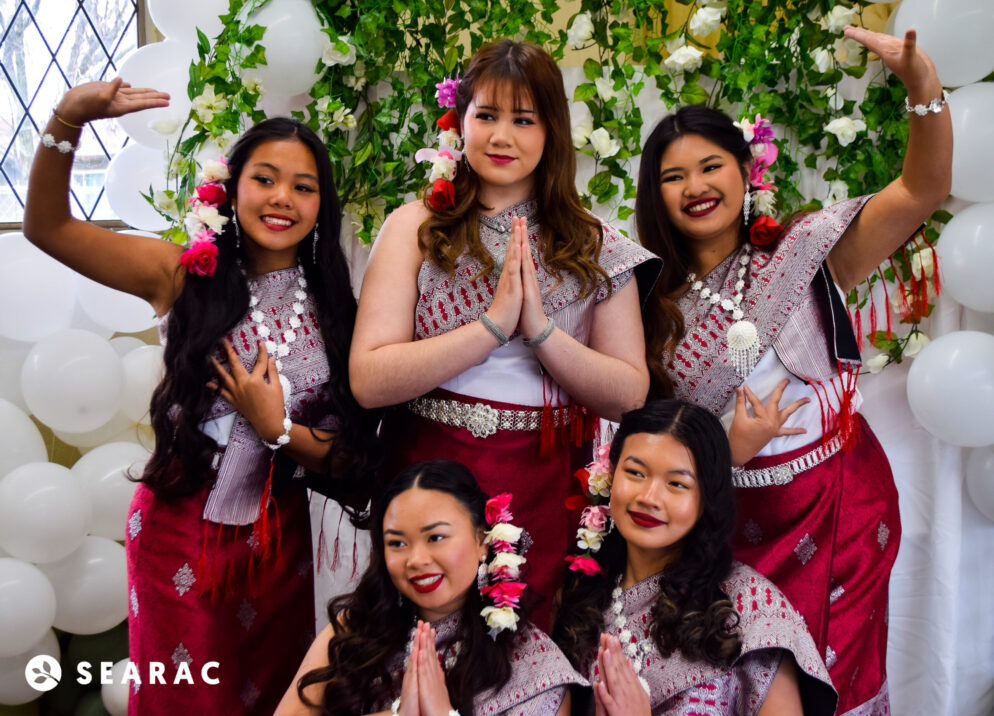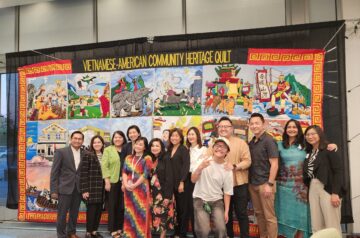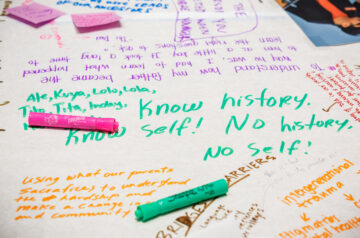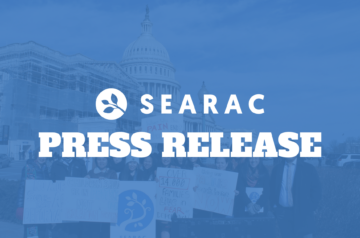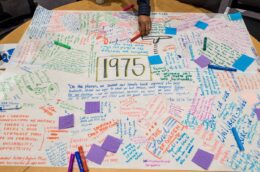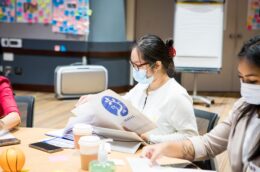Learning about the histories, culture, and experiences of our diverse communities, including SEAAs, benefits all students.
Key resources:

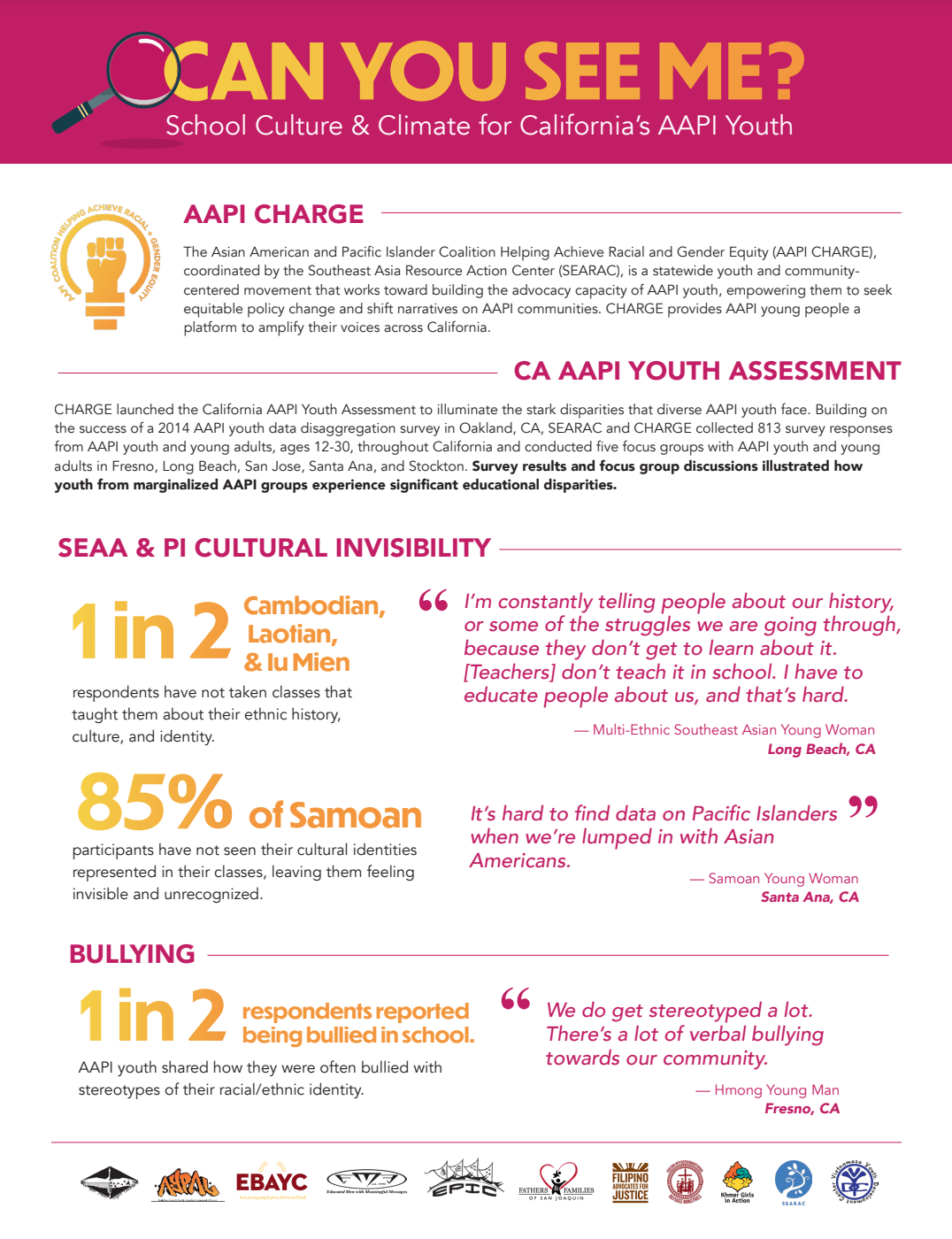
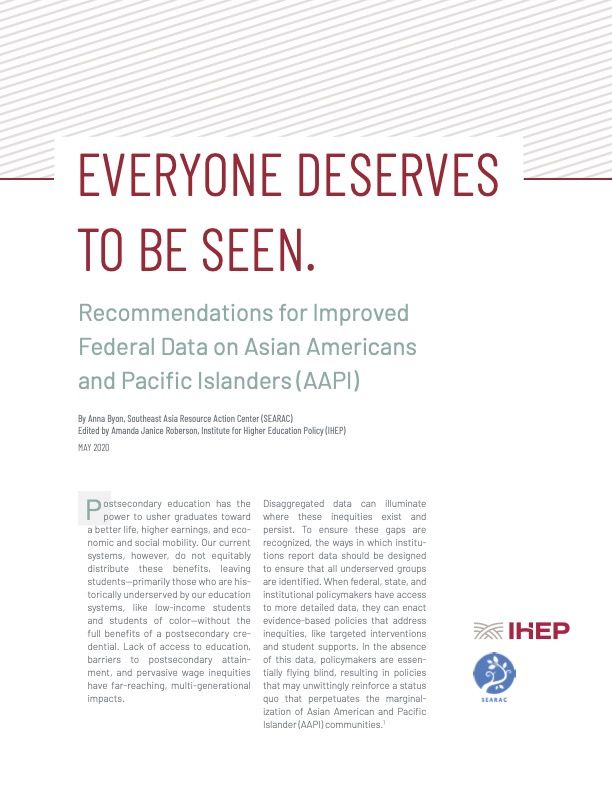
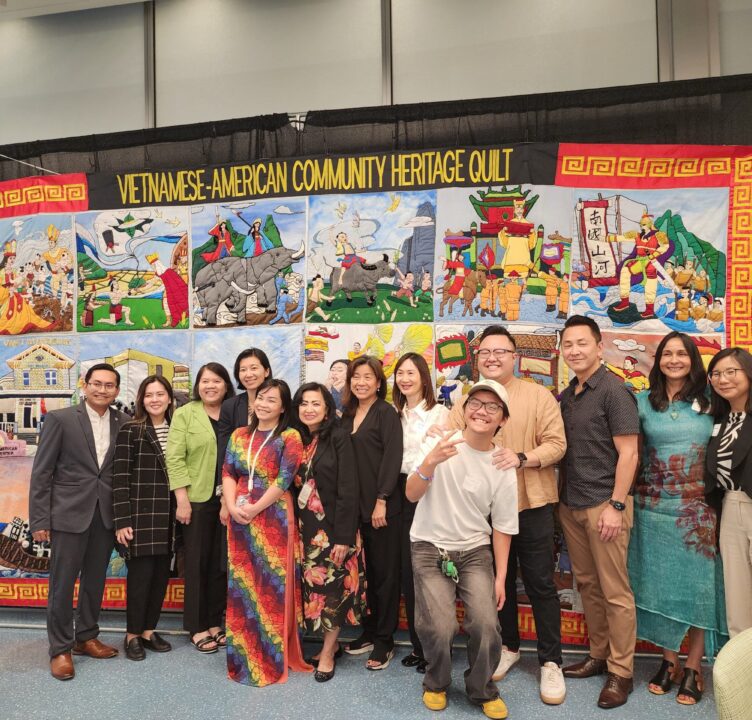
Featured story
Model Curricula on Vietnamese, Cambodian, and Hmong Experiences Now Available
Sacramento, CA – SEARAC is thrilled to announce that the website on the California Department of Education’s ethnic studies model curricula on Cambodian American Studies, Hmong History and Cultural…
Learn more“I’m constantly telling people about our history, or some of the struggles we are going through, because they don’t get to learn about it. [Teachers] don’t teach it in school. I have to educate people about us, and that’s hard.”
From our “Can You See Me” report
“Next year, it will be 50 years since our Hmong families left their homeland to escape war and come to America, and yet many people still don’t know why we are here and who we are.”
AAPI Coalition of Wisconsin
“Recognizing the Laotian refugee experience in our schools not only provides Southeast Asian American youth with the visibility, acknowledgment, and celebration they deserve but also enriches the education of all students by deepening their understanding around a subject that is historically overlooked.”
Laotian American National Alliance

“Ethnic studies is particularly important for Asian Americans because the racialization of Asian Americans is deeply haunted by American and European military intervention and imperialism in Asia and the foundations of settler-colonialism and anti-Blackness in the United States.”
SEARAC intern
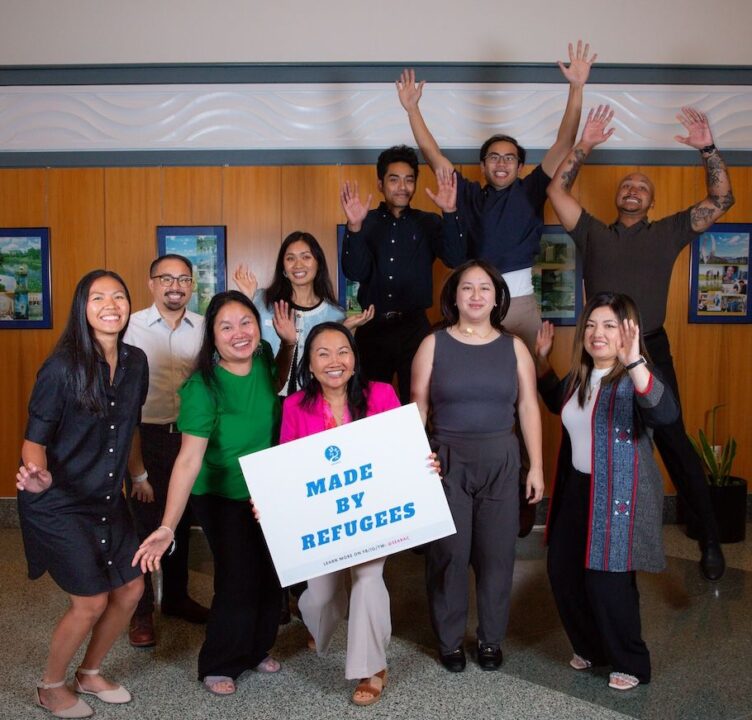
Subscribe to our newsletter for the latest updates on the SEARAC community, and to learn more about how you can get involved.
Nearly 1 in 5 Southeast Asian Americans live at or near poverty—and for many, federally funded education programs are the difference between falling behind or moving forward.
Many SEAA students rely on school support systems built for low-income families.
Cutting these funds means SEAA students will lose the resources they need to thrive.
Our children deserve equal chances—not underresourced classrooms. Tell your US senators to vote NO at the link in our bio and/or call (202) 224-3121 #OurRootsOurPower
Jun 26

Today SEARAC is joining partners across the country to demand the Senate vote NO on the reconciliation bill. Congress is racing to pass a big bad bill that will fund tax cuts for billionaires and supercharge deportations. Tell your US senators to vote NO at bit.ly/SEAApower #OurRootsOurPower
Jun 26

Right now, SEARAC is on the Hill with our #LAT2025 cohort, demanding the Senate vote NO on the reconciliation bill. Congress is racing to pass a big bad bill that will fund tax cuts for billionaires and supercharge deportations. Join us and tell your US senators to vote NO at the link in our bio and/or call (202) 224-3121. #OurRootsOurPower
Jun 26

We’ve officially wrapped up Day 2 of SEARAC’s LAT program! Today was a powerful journey through reflection as participants looked back at the history of our Southeast Asian American community, recognizing where we stand today, and envisioning the future we’re working toward.
Our communications team led a workshop on how to create your narrative, followed by a dynamic panel on Advocacy Communications with our incredible partners. We closed out our day with music, movement, and dancing!
Tomorrow, our participants will take their voices to Capitol Hill, meeting with legislators to advocate for policies that directly impact Southeast Asian American communities. We couldn’t be more proud of the strength, courage, and collective power they’ve built. #LAT2025
Jun 25

SEARAC LAT Day 1 ✅
Today marked the exciting kickoff of SEARAC’s #LAT2025 program! We welcomed our incredible cohort as we began a powerful journey honoring Southeast Asian American history and the resilience of our refugee communities.
Participants took time to reflect on their personal purpose that brings them to this 3-day advocacy training. They then broke out into issue tracks focused on health, immigration, and education policy. Led by SEARAC staff, board members, and facilitators, these sessions offered a deep dive into how these critical issues affect Southeast Asian American communities today.
Follow along @SEARAC for more updates throughout #LAT2025!
Jun 24


